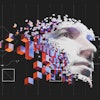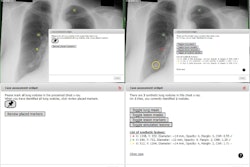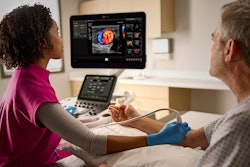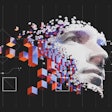An AI certificate course can improve knowledge of the technology for radiology residents, a study published June 21 in Academic Radiology found.
Researchers led by Mark Finkelstein, MD, from the New York University Langone Medical Center reported that most of the students indicated their knowledge of AI increased after completing the program and over half expressed interest in further AI education.
“The benefits of such a course can be found regardless of program, resident year, and self-reported prior resident understanding of radiology in AI,” Finkelstein and colleagues wrote.
While AI continues to be integrated into radiology workflows, educators are working to provide students with the knowledge needed to effectively work with the technology. This includes emphasizing how to design and implement AI evaluation studies and how to measure an algorithm’s effect on patient care and healthcare delivery.
“Learning to effectively utilize AI requires more than lecture materials, but also hands-on practice to build and support real-world skills,” the researchers wrote.
Finkelstein and co-authors evaluated an AI certificate program's effectiveness in helping radiology trainees understand the evolving role and application of the technology in radiology. They also sought to determine the background of residents that would most benefit from such training.
The pilot study included 42 radiology residents at two separate residency programs who participated in the RSNA Imaging AI Foundational Certificate course over a four-month period. The course consisted of six online modules that contained didactic lectures followed by quizzes to assess knowledge gained from these lectures. The researchers conducted pre- and post-course assessments to evaluate the residents' knowledge and skills in AI, as well as a survey to assess participants’ overall satisfaction.
All 42 participants completed the program. The team reported a precourse assessment score of 37%. This significantly increased to 73% after the modules were completed (p < 0.001). Also, 31 of the participating residents (74%) agreed that the coursework improved their familiarity with AI in radiology.
The researchers also found that residency program, residency year, and reported prior familiarity with AI did not significantly influence precourse score, postcourse score, or score improvement. Finally, 24 participants (57%) expressed interest in pursuing further certification in AI.
The study authors called for future research to assess the long-term retention of knowledge and how this knowledge translates into practical skills in radiological practice.
“This study is vital as it bridges the knowledge gap that currently exists regarding the introduction and integration of AI education in radiology residency programs,” they wrote.
The full study can be found here.



















